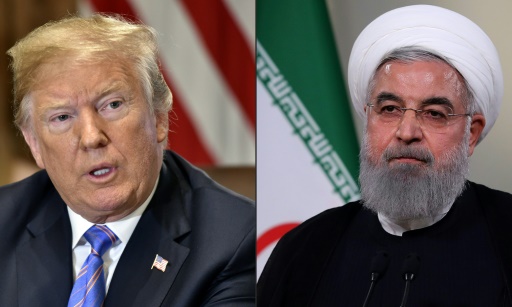Melbourne (Informed Comment) – The Trump administration is raising the temperature on Iran, ostensibly to change its behaviour. But it is hard to avoid the impression that the US administration is pursuing regime change. In a speech delivered to Iranian Americans, the Secretary of State Mike Pompeo expressed solidarity with the Iranian people and condemned the leadership of the Islamic Republic as a bunch of hypocritical thieves. He pointed approvingly to public protests across the country as evidence of the ruling regime’s incompetence, falling short of a call for a revolution.
But he did make a public statement about the US commitment to expanding its Persian language broadcast into Iran to counter state censorship, in a strategy reminiscent of the US approach to the former Soviet Union, and subsequently the post-Soviet republics that went through Colour Revolutions in the first decade of the 21st Century. The outcome of that strategy in the post-Soviet space was the sidelining of the pro-Moscow elite and the ascendency of a pro-US leadership. Given the tone of Trump and Pompeo on Iran and the pointed commitment to making US media accessible in Iran, it is hard to avoid drawing a parallel with that historical experience. This is a regime change strategy on the cheap.
Coupled with the US withdrawal from the nuclear deal and the reimposition of US sanctions on Iran, this strategy shuts the gate to any prospects of renewed negotiations. The change of tenor from the Obama era makes it impossible for President Rouhani to continue advocating talks with the United States. Rouhani has been under immense pressure by his hard-line critics for giving up too much control over Iran’s nuclear program to secure a deal in 2015. With President Trump’s decision to withdraw from the deal despite confirmation by the International Atomic Energy Agency that Iran has been compliant with its agreed obligations, Rouhani’s critics have doubled their attacks asking for his resignation.
Even the Supreme Leader Ali Khamenei who tries not to be drawn into factional fighting made a public statement to say the US turn-away from the deal was a ‘defeat’ for Rouhani.
Rouhani has tried to defend his political fortunes by adopting a tough-line on the United States, while hoping to save the deal with assistance from the European Union, Russia and China. However, just as diplomatic overtures and deal-making signified foreign policy in Rouhani’s first term, his second term in office is being defined by rapidly escalating tensions with the United States. Rouhani cannot afford to look weak in the face of US hostility and has employed a combative language in response to the Trump administration.
Rouhani mocked the United States for trying to drive a wedge between the Iranian people and the government and evoke a Persian warning of a fool who played with a lion’s tail. Rouhani’s change of tone was also evident while on a trip to Europe a week earlier, when he warned the US not to try and block Iranian oil exports, otherwise no oil will flow through the Persian Gulf. This was widely seen as a threat to block the Strait of Hormuz, a bottle-neck for oil shipments from littoral states of the Persian Gulf. Subsequently, the Iranian Supreme Leader added more weight to that threat by endorsing the idea as an option for Iran.
Growing tension between Iran and the United States and the consequent resumption of sanctions is a nightmare for Rouhani, who came to office with the promise of bringing Iran out of isolation. He has tried to respond to the changed international climate by sounding more and more like his hard-line critics. But the reality is that he is now very vulnerable to a political challenge from those critics. The Islamic Revolutionary Guards Corps (IRGC), with its immense economic muscle and direct line of report to the Supreme Leader (as the Head of State), has been publicly sceptical of Rouhani’s diplomatic overtures and is now gleeful in his set-back. The IRGC welcomed President Trump’s decision to withdraw from the nuclear deal and saw it as an opportunity to revert US-Iran relations back to the pattern of hostility that characterised it for most of the last decades.
The Trump administration’s avowedly anti-Iran agenda and the pursuit of regime change has made President Rouhani a hostage to the hard-line faction and sabotaged his capacity to bring Iran out of isolation. There is little to block IRGC from pushing Rouhani aside, only the Supreme Leader’s concern with setting a precedent, and claiming a more direct role in running the Islamic Republic of Iran.
Featured Photo: AFP/File / Nicholas Kamm, HO. A war of words has erupted between US President Donald Trump and Iranian President Hassan Rouhani.



 © 2025 All Rights Reserved
© 2025 All Rights Reserved